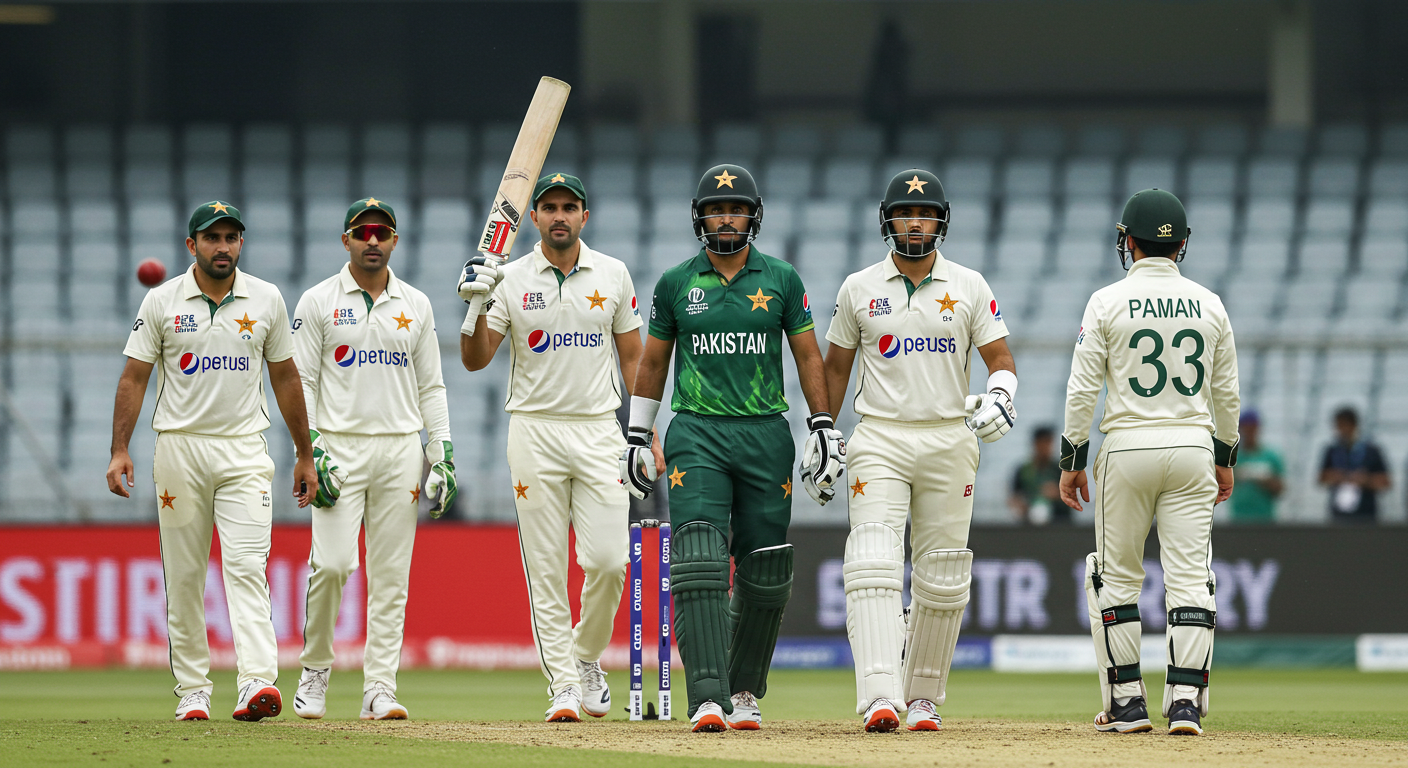Pakistan Railway Cricket Team Manager: A Deep Dive into the Role

Unveiling the Crucial Role of the Pakistan Railway Cricket Team Manager
The Pakistan Railway cricket team, a vital part of Pakistan’s cricketing landscape, relies heavily on the leadership and organizational skills of its manager. This pivotal role extends far beyond simple logistics, impacting the team’s morale, performance, and overall success. Click to discover the nuances of this significant position!
Beyond the Field: A Deeper Look into the Pakistan Railway Cricket Team Manager’s Responsibilities
Managing a sports team, especially one at the level of Pakistan Railway, requires a multifaceted approach. The manager is the linchpin, acting as the point person in navigating the intricacies of the cricketing world. This isn’t just about match days; it’s about meticulous planning and support throughout the entire season, from grassroots training to high-stakes tournaments.
The Comprehensive Responsibilities
The Pakistan Railway cricket team manager is responsible for a vast array of duties, encompassing all aspects of team operations. Let’s delve into some of the key responsibilities:
- Pre-match Planning and Logistics: From securing venues and transportation to arranging accommodation and catering, the manager oversees all logistical aspects. This includes pre-match scouting reports, travel arrangements, and hotel bookings, ensuring the team has a smooth and efficient journey.
- Team Management and Welfare: The manager plays a crucial role in fostering a positive and productive team environment. It’s not just about tactics; it’s about understanding individual players’ needs and ensuring their well-being. This involves handling player grievances, conflicts, and providing a supportive environment.
- Budget Management: The manager must meticulously oversee the team’s budget, ensuring that funds are allocated effectively for training, equipment, travel, and other essential aspects. This requires budgeting skills and an understanding of the financial implications of cricketing commitments. A prudent manager anticipates potential costs and manages them effectively.
- Communication and Relations: Maintaining strong communication channels with team members, coaches, the governing body, and other stakeholders is vital. This might involve coordinating with the team’s management, reporting progress, or seeking support. Building relationships is also essential, with the manager often acting as a crucial liaison.
- Maintaining Discipline and Conduct: The manager plays a critical role in upholding the team’s discipline and conduct both on and off the field. This includes adherence to rules, sportsmanship, and ethical behavior. Fostering a positive image of the team is another important element.
- Data Management: The manager collects and analyzes team performance data, such as scores, statistics, and player performances, using the collected information to strategize and improve team performance. This data-driven approach allows for a more informed decision-making process for the coaches and the players themselves.
The Challenges of the Role
While the role offers immense satisfaction, it also presents unique challenges. Balancing the diverse needs of players, maintaining discipline, and managing budgets under pressure can be demanding.
The Human Element: Understanding the Emotional Impact of Managing a Cricket Team
Cricket, especially at the professional level, demands intense emotional labor. Players experience highs and lows, and a manager must be equipped to navigate the emotional landscape of a cricket team, ensuring everyone stays motivated. The manager must have strong emotional intelligence to build rapport and trust with players, which is often a pivotal factor in success.
The Importance of Experience and Skills
The Pakistan Railway cricket team manager needs a unique blend of skills and experiences to thrive in this demanding role.
- Strong Communication Skills: The ability to communicate effectively with players, coaches, and stakeholders is paramount.
- Time Management: Balancing multiple tasks and responsibilities requires excellent time management skills.
- Problem-Solving Abilities: Facing unexpected challenges and solving them effectively is a crucial aspect of the role.
- Organizational Skills: Managing the logistical aspects of a cricket season is essential.
- Leadership Qualities: Motivating the team, fostering a positive atmosphere, and inspiring players are critical.
Looking Ahead: The Future of the Pakistan Railway Cricket Team
The Pakistan Railway cricket team’s success is intrinsically linked to the caliber of its manager. The manager is the unsung hero behind the scenes, the steady hand guiding the team towards victory and providing crucial support. The role requires profound dedication, understanding, and strategic vision. The ability to adapt to evolving cricketing landscapes and incorporate modern strategies will be pivotal in the future.
A Legacy of Excellence: How the Pakistan Railway Cricket Team Manager Shapes the Future
The Pakistan Railway cricket team manager stands as a crucial figure in the team’s success. From fostering a strong team environment to overseeing logistical details, their influence extends far beyond the cricket pitch. The role requires more than just organizational abilities; it necessitates empathy, strategic thinking, and the unwavering dedication to the team’s well-being and excellence.
In conclusion, the manager of the Pakistan Railway cricket team is more than just a facilitator; they are a cornerstone of the team’s structure. Their ability to navigate the complexities of the cricketing world, foster a positive environment, and manage resources effectively will determine the team’s success.
Disclaimer: The information provided in this article is for educational purposes only and should not be construed as professional advice.